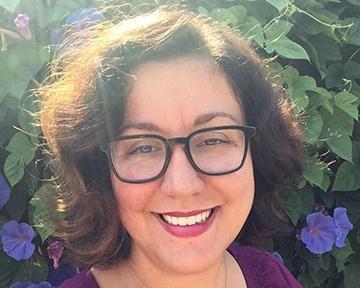
Posts By This Author
How I Learned the Difference Between Humility and Humiliation
"WE WILL MAKE you humble,” the superior in the Catholic order told me. I was 18 years old and had just joined a community of Catholic women religious.
We were eating dinner, and I was excitedly telling her and the other sisters what I had learned in theology class. A sister asked me, “Do you want to be a theologian?” Without hesitation, I answered “yes.” She shot a quizzical look at the superior, who said, “Being a theologian is likely to make you proud and arrogant. Don’t worry—we will make you humble.” She and the others smiled knowingly. Confused and hurt, I shut up.
Becoming a theologian was not something that I wanted to do for prestige. It was what I felt called to do; it was, and is, my vocation. As is usually the case in stories like this one, not all the sisters agreed with the superior’s comment.
Later that evening, one of the older sisters approached me as I was studying in the convent library. She put her hand on my shoulder and said, “Little sister, do you know what humility is?” Before I could reply, she said, “Humility is the truth.” Then she pointed at my books and notes. “The truth is that you love to study, question, think, and write. The truth is that these are the gifts God has given you. So be humble: Accept them and do something with them for the greater good.”
My life has taken me far from that convent library, but I’ve never forgotten her words because they freed me. After all, isn’t that what truth does? It sets us free. But free from what?
Days of Feast and Famine
NOVEMBER IS THE MONTH of remembrance and thanksgiving. It begins with the Feasts of All Saints (Nov. 1) and All Souls (Nov. 2), when Christians honor holy women and men. What does it mean to be holy? Too often, we think of holiness as an impossible task—we equate it with a scrupulous perfectionism none of us can attain. That is an easy, and spiritually immature, excuse not to ponder what holiness might mean for us. To be holy is to be one with God. As people of faith, we are all called to holiness. It is something that we grow into as we grow in our relationship with God, others, and ourselves.
The women and men whose names we sing in the Litany of the Saints (as well as the names of our loved ones who we might add to that litany) were not angels. They were humans, like you and me. However, we remember them because their lives witnessed to God’s loving presence in our midst. We, too, are called to witness to this grace. The readings for this month remind us that becoming holy will demand much of us. It requires that we “love the Lord our God with all our heart, and with all our soul, and with all our might” (Deuteronomy 6:5) and that we “love our neighbor as we love ourselves” (Mark 12:31). They also promise us that God “will show [us] the path of life” (Psalm 16:11) and “fullness of joy” as we tend to God’s “kin-dom.”
[ November 4 ]
Beware Shiny Gods
Deuteronomy 6:1-9; Psalm 119:1-8; Hebrews 9:11-14; Mark 12:28-34
OUR READINGS begin with the words of the Jewish Shema: “Hear, O Israel: The Lord is our God, the Lord is one. You shall love the Lord your God with all your heart, and with all your soul, and with all your might” (Deuteronomy 6:4-5). Immediately, the scripture reminds us that God is to be the center of our lives. But how do we make God the center of our lives? In a world where distractions abound—where there is always some new and shiny god being launched for the low, low price of $29.99 per month—how do we love God with all our hearts, souls, and might? While the shiny false gods might be easy to identify and avoid, how do we genuinely attend to the variety of “competing goods” (as my colleague the ethicist calls them) in our lives? How do we balance time for prayer with time for family, friends, ministry, work, and self-care?
In Mark’s gospel, Jesus adds on to the Shema, stating that the second great commandment is to “love your neighbor as yourself” (Mark 12:31). Perhaps this is a clue as to how we can make God the center of our lives while also attending to our competing goods: Namely, we can see that God is always already at the center of those goods. After all, God is what makes them good! This does not mean that we do not commit to the discipline of prayer, but it does mean that the overall goal of prayer is to make us aware of the ever-present God in our midst. Imagine: What would that Monday morning board meeting look like if we really believed that God was present there? How about those 3 a.m. newborn feedings and endless diaper changes? Or that friend going through a divorce who just needs someone to listen? What if we really saw each of those moments, each of those people, as encounters with the living God? Perhaps then we might be able to say, “I am loving the Lord my God with all my heart, all my soul, and all my might. And I am loving my neighbor as myself.”
Finding God in Dark Alleys
SEPTEMBER'S READINGS ARE challenging and provocative. They call us out of our comfort zones, demanding that we examine our lives carefully in light of what it means to be a follower of Christ. In the story of the Syrophoenician woman, we glimpse Jesus speaking harshly to someone seeking his help. However, we also see what happens when that woman refuses to remain silent: Jesus answers her request. Her daughter is cured; life is restored. Who are the people who seek our help? As we read the news, whose lives and deaths reach out to us? And how do we answer them? If we dare to call ourselves Christians, then turning away from them is not an option.
The gospels show us that witnessing to God’s love in our world demands entering into the margins, the places where human tradition masking as religion tells us that God is not to be found. As feminist theologian Marcella Althaus-Reid notes, we must venture down the “dark alleys” to find God in lives and bodies too often deemed “indecent.” For those of us who like to patrol the boundaries of decency and indecency, we need to ask ourselves if such borders stem from God or from human traditions such as sexism, racism, classism, homophobia, and ableism. For those of us whose bodies and lives are called “indecent,” the challenge becomes to exorcise the demons of self-doubt and internalized oppression that we carry within ourselves. It is only then that we can answer Jesus’ question: “But who do you say I am?”
The Sheepy Smell of God
WE FIND OURSELVES AMID “ordinary time.” Most of the liturgical calendar, like our lives, is comprised of ordinary time. Yet our readings this month remind us that the extraordinary can be found in the ordinary, just as God can be found in us. Each of the gospels this month shows us Jesus growing more into his ministry as well as his identity as the Christ. Like us, he is not always comfortable with who he is. We see him: questioning who touched and was healed by his cloak (Mark 5:21-43); rejected by his hometown (Mark 6:1-6); said to be a prophet raised from the dead (Mark 6:14-29); acting like a good shepherd (Mark 6:30-34); retreating after feeding the 5,000 because he does not want to be forced into being king (John 6:1-21).
Even amid miracles and messianic titles, there is an ordinariness about Jesus in these stories. We glimpse a familiar narrative of the suffering and joy found in following God’s call. For some, this interpretation may be too much of a “Christology from below,” too little emphasis on Jesus as divine. Yet the gift of ordinary time reminds us that what we deem too quotidian, too human, might reveal God to us after all.



